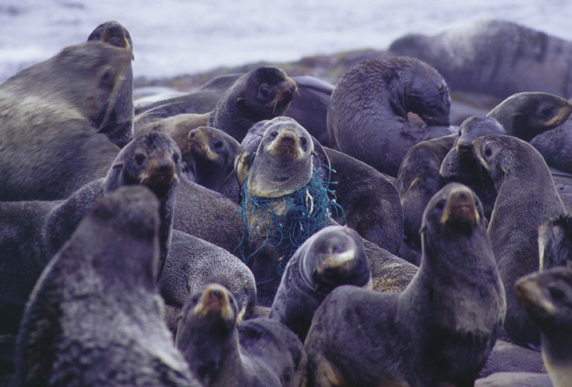You Spoke Up and the U.S. Coast Guard Is Listening
Earlier this year, Pacific Environment exposed how the U.S. delegation to the U.N. agency overseeing the creation of new international shipping rules in Arctic waters led the charge for shockingly weak environmental protections.
Headed by the U.S. Coast Guard, our representatives at the International Maritime Organization (IMO) strongly opposed Canada and Russia’s proposal to prohibit ships from dumping waste in Arctic waters. They claimed that a zero discharge policy was impractical—even though the world’s two largest Arctic nation states, Canada and Russia, are already implementing a total ban on waste dumping.
In response, Pacific Environment called on our supporters to email Admiral Papp, the Commandant of the U.S. Coast Guard. Thousands of people responded to our call to action and urged him and his agency to support strong environmental shipping regulations in the Arctic. This uproar got the U.S. Coast Guard’s attention—and led to some real-world changes:
- At the most recent IMO meeting, the U.S. delegation supported a ban on dumping water contaminated with oil into the ocean. This is an important win.
- The U.S. Coast Guard took a much more positive stance on several key environmental rules that will affect the well-being of Arctic marine wildlife and coastal communities.
- The U.S. Coast Guard reached out to Pacific Environment and said that it will ask for advice on environmental regulations from us and our allies well in advance of future IMO meetings.
As you can see, your support has been instrumental, and together we’ve achieved some real wins, but much work remains to be done.
Right now another threat to Arctic wildlife and communities is the discharge of toxic cleaning chemicals. Ships need to regularly clean their cargo containers. Usually this is done in port by professional cleaning companies that have to properly dispose of the toxic cleaning residue.
But we recently learned that some shippers are cleaning their containers offshore and are dumping these dangerous cleaning chemicals in the ocean—to save money and increase profits.
One of these dangerous chemicals is polyisobutene (PIB). This past spring, the BBC reported that a PIB spill killed or injured nearly 3,000 birds off the southwest coast of England in one of the country’s worst marine pollution incidents.
PIB is not yet classified as a highly dangerous chemical, even though it kills birds and other wildlife on contact; ships can just dump water contaminated with this toxic cleaning chemical into the ocean. That’s why we’re calling on the IMO to ban the discharge of this deadly chemical.
We’re already talking to the U.S. Coast Guard to get their support on this issue, and now we’re reaching out to the National Oceanic and Atmospheric Administration (NOAA), another key player in the U.S. delegation to the IMO. But we need your help. Join us and urge Kathy Sullivan, Acting Administrator of the National Oceanic and Atmospheric Administration, to support a ban on the discharge of water contaminated with the dangerous chemical polyisobutene.
Thank you for speaking up and helping us make a difference at the IMO. Together we can turn the tide for the Arctic!



